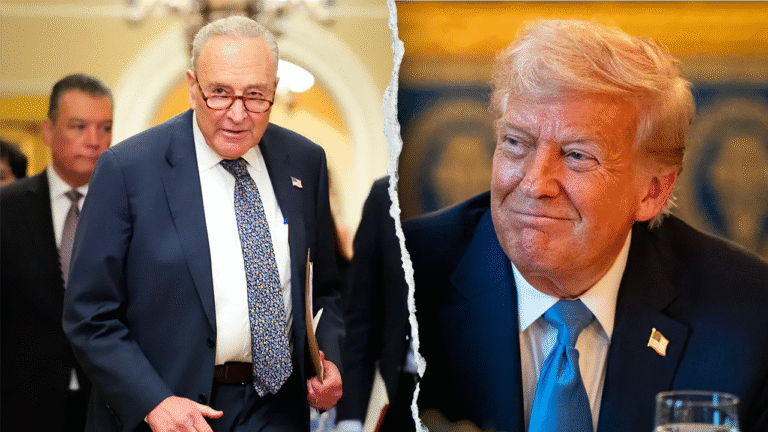Senate Republicans Consider Nuclear Option Amid Stalled Nominee Negotiations
By Alex Miller, Fox News Digital
Recent Negotiations Collapse
Senate Republicans are contemplating a radical change in the Senate rules, known as the “nuclear option,” following the breakdown of negotiations with Senate Democrats over President Donald Trump’s nominees. This deadlock occurred after Trump accused Senate Minority Leader Chuck Schumer of engaging in “political extortion,” claiming that Schumer’s demands were unreasonably high.
No Agreement Reached
With lawmakers leaving Washington without a deal, the confirmation of numerous nominated officials remains in limbo. Many of these nominees had gained bipartisan support during committee reviews, but a strategy for moving forward is yet to emerge. Senate Majority Whip John Barrasso criticized the Democrats for their unprecedented obstruction, noting that nearly every nomination had faced a filibuster.
Republican Response
Barrasso underscored the urgency of the situation, stating, “Every nominee has faced a filibuster except Secretary of State Marco Rubio.” He emphasized that unless Senate Democrats change their tactics, Republicans may have to reconsider how nominations are handled, asserting that “a president needs to have his or her team in place.”
Nuclear Option Explained
Typically, changing Senate rules requires a supermajority of 67 votes, ensuring bipartisan support. However, the nuclear option allows for rules changes with a simple majority. While Republicans express a strong desire for this change, it also opens the possibility for Democrats to implement similar tactics in the future, raising concerns about long-term consequences.
Potential Changes on the Table
Various options are being considered to expedite the nomination process, including reducing debate time, eliminating procedural votes for lower-level nominees, and grouping civilian nominees together for consideration. These changes, which are already practiced for military nominees, could streamline the confirmation process significantly.
Disappointment After Failed Negotiations
Despite attempts to negotiate, frustrations persist among Republicans. Sen. Markwayne Mullin commented on the necessity for changes, stating that Schumer’s actions have forced their hand into considering the nuclear option. Meanwhile, Senate Majority Leader John Thune indicated that the past months illustrate a broken nomination process, calling for robust discussions on necessary reforms.
Looking Ahead: Government Funding and Negotiations
With the Senate now on recess until early September, lawmakers will be challenged to address looming deadlines related to government funding and potential shutdowns. Although recent spending bills advanced in the Senate, their future remains uncertain, especially with the House GOP favoring lower spending levels. Schumer warned that unilateral rule changes could have negative repercussions on funding talks, emphasizing the need for cooperation to serve the American people.
